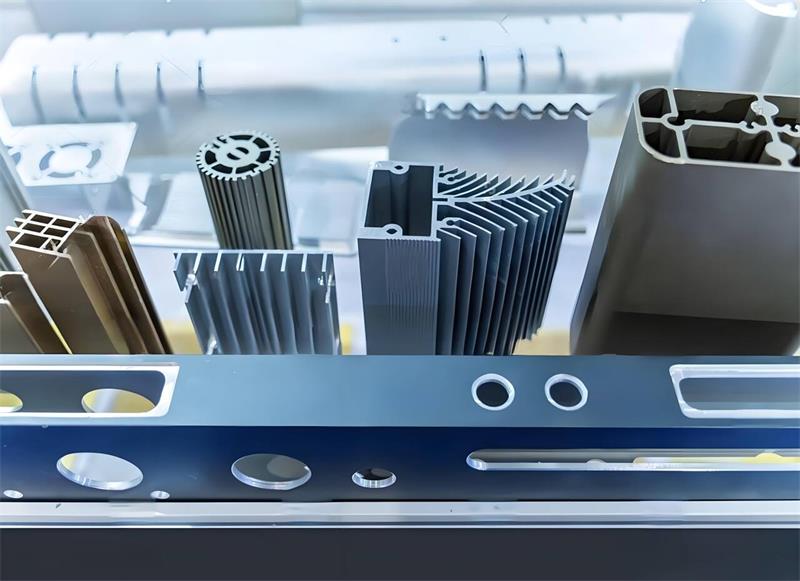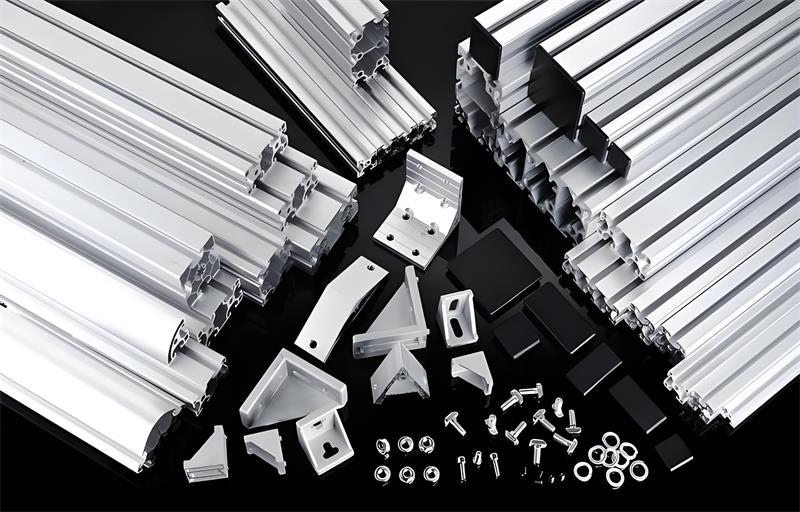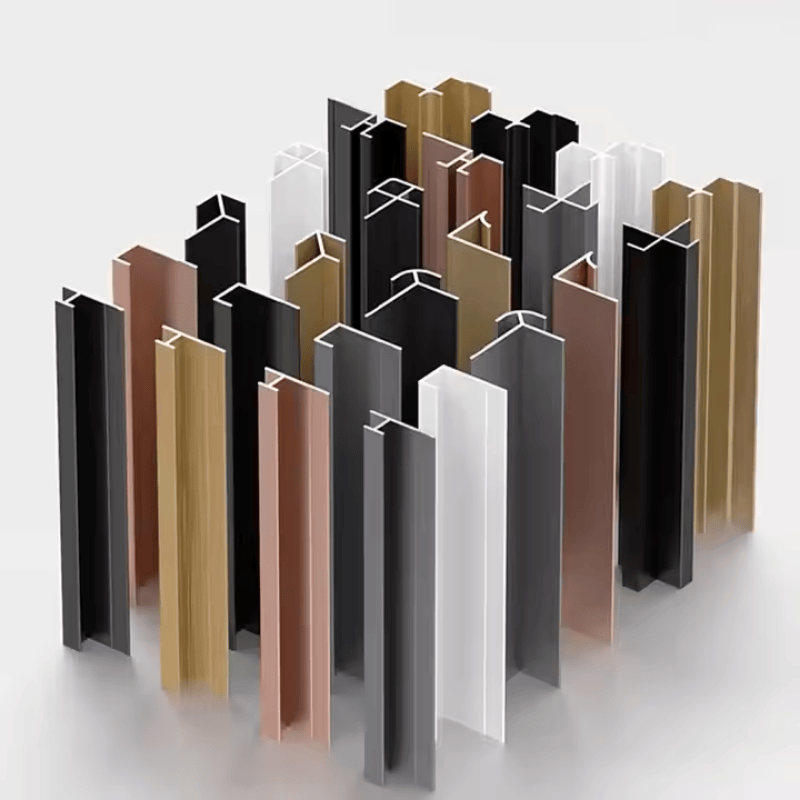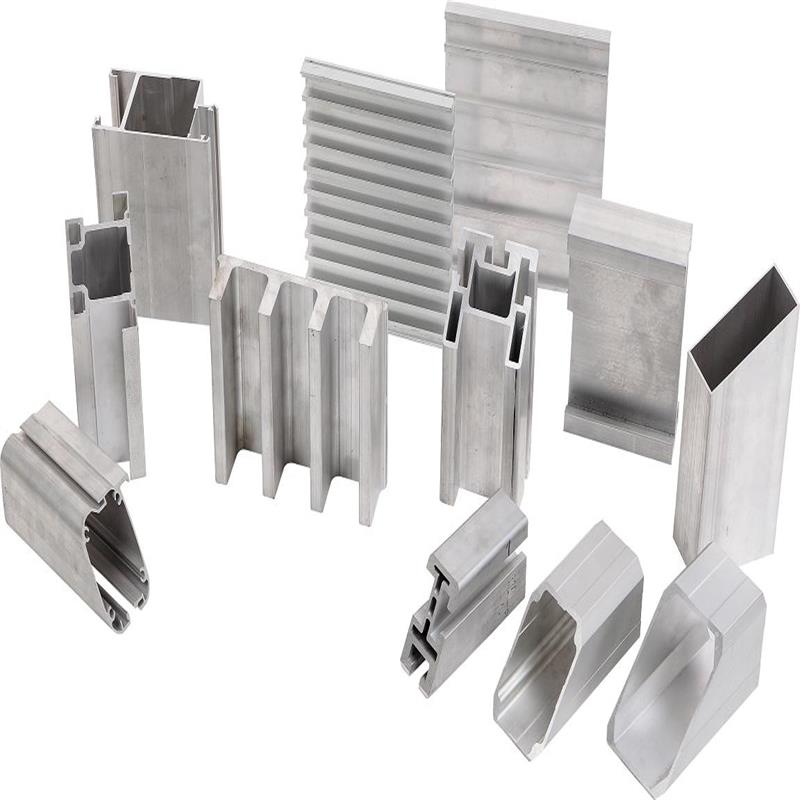Aluminium Profiles: The Backbone of Industrial Applications
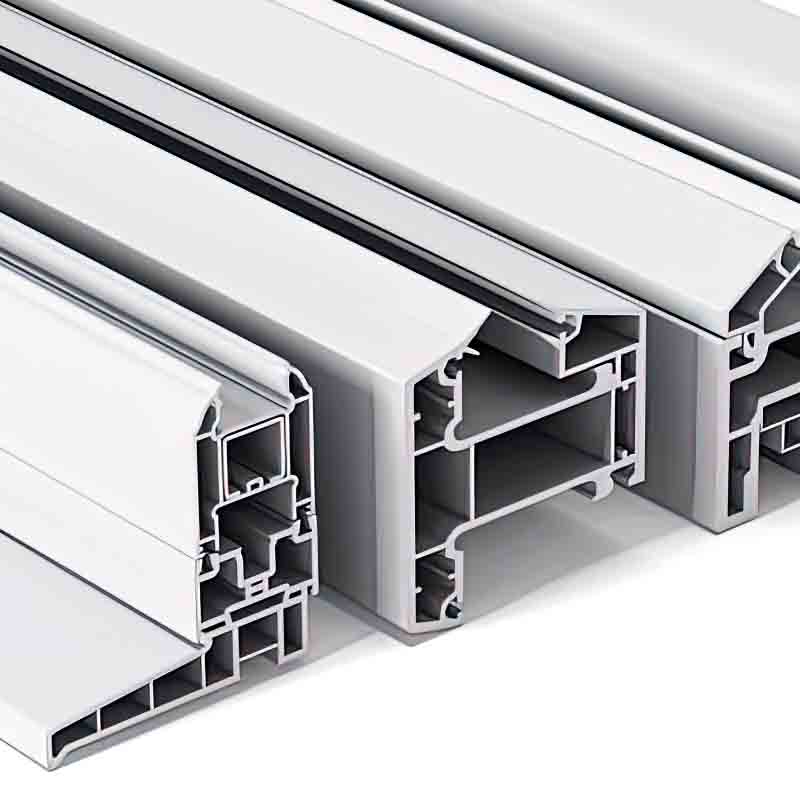
Outline
Introduction
Significance of aluminium profiles in industry and role of Aluinno.
Overview of aluminium extrusion process.
Types of Aluminium Profiles
Standard profiles (square, round, rectangular) and their uses.
Custom profiles for specific projects and Aluinno's custom capabilities.
Modular profiles (e.g., T-slot) and their applications.
Industrial Applications
Machinery frames: advantages and Aluinno's products.
Support systems: stability and customization.
Conveyor structures: features and Aluinno's offerings.
Surface Finishes
Anodizing, powder coating, and other finishes.
Profile Selection
Key factors and industry-specific needs.
Benefits of working with Aluinno.
Conclusion
Importance of aluminium profiles and Aluinno's reliability.
Introduction
In the modern industrial landscape, aluminium profiles have emerged as essential components, underpinning the functionality and efficiency of diverse manufacturing processes. Their unique combination of lightweight, high strength, and excellent corrosion resistance makes them a preferred choice across numerous sectors. Aluinno, a prominent player in the aluminium profile industry, has been at the forefront of providing top-notch solutions tailored to meet the intricate demands of industrial applications.
Aluminium extrusion profiles, in particular, play a pivotal role. They are formed by subjecting heated aluminium billets to high pressure through a precisely designed die. This extrusion process endows the aluminium with a specific cross-sectional shape, resulting in profiles that can be customized to varying lengths and specifications. The ability to produce complex geometries while maintaining structural integrity has opened up a plethora of possibilities in industrial design and engineering.
What are Aluminum Extrusion Profiles
Definition
Aluminum extrusion profiles are structural elements crafted by forcing heated aluminium through a die to achieve a desired cross-sectional form. This process allows for the creation of a vast array of shapes, from simple geometric figures like squares and circles to highly intricate designs. The uniformity and precision of the extrusion method ensure that each profile meets the exacting standards required for industrial applications.
The Extrusion Process
The extrusion process commences with heating the aluminium billet to a malleable state. It is then pushed through the die using a powerful ram. The die, which is custom-engineered for each specific profile shape, imparts the final form to the aluminium. This highly controlled process not only determines the shape but also influences the mechanical properties of the profile, such as its strength and hardness. After extrusion, the profiles can be further processed through cutting, machining, and surface treatments to fulfill the diverse needs of different industries.
Types of Aluminum Profiles
Standard Profiles
Standard aluminium profiles include commonly used shapes such as square, round, and rectangular profiles. Square profiles are frequently utilized in the construction of machinery frames and support structures due to their stability and ease of assembly. Round profiles find applications in areas where fluid transportation or rotational movements are involved, like in piping systems and shafts. Rectangular profiles, with their flat sides, are ideal for creating enclosures and platforms. These standard profiles are readily available in the market and offer a cost-effective solution for many general industrial requirements.
Custom Profiles
Custom aluminium profiles are designed to meet the unique and specific needs of individual industrial projects. For instance, in the automotive manufacturing sector, where space constraints and specialized performance requirements are prevalent, custom profiles are engineered to fit precisely within the vehicle's architecture. Aluinno's expertise in custom profile production lies in its ability to collaborate closely with clients. Through in-depth consultations, their team of engineers can translate the most complex design concepts into tangible, high-quality aluminium profiles. This level of customization ensures that each component functions optimally within its intended application.
Modular Profiles
Modular profiles, exemplified by T-slot profiles, have revolutionized industrial assembly processes. T-slot profiles feature a distinctive design that allows for the easy attachment of various accessories and components without the need for welding or complex fastening techniques. They are widely used in the construction of modular workstations, conveyor systems, and machinery enclosures. In industrial automation, T-slot profiles enable rapid reconfiguration of production lines, enhancing flexibility and adaptability. Their versatility has made them an indispensable tool in modern manufacturing environments.
Aluminum Profiles in Industrial Applications
Machinery Frames
Aluminium profiles are highly favored for machinery frames due to their remarkable strength-to-weight ratio. In comparison to traditional materials like steel, aluminium allows for the construction of lighter frames without sacrificing structural integrity. This weight reduction is crucial in applications where mobility or energy efficiency is a priority. For example, in the manufacturing of industrial robots, aluminium profiles enable the robots to move with greater speed and precision while consuming less power. Aluinno's aluminium profiles for machinery frames are engineered to withstand heavy loads and dynamic forces, ensuring long-term reliability and performance.
Support Systems
In industrial support systems, aluminium profiles provide stable and durable solutions. Whether it's supporting heavy equipment or providing structural reinforcement in buildings, their corrosion resistance and strength make them an ideal choice. In warehouses, aluminium profiles are used to construct storage racks that can withstand the weight of heavy goods while remaining resistant to environmental factors such as humidity and chemicals. Their modular nature also allows for easy customization and expansion of the support systems as per the evolving needs of the industrial facility.
Conveyor Structures
Conveyor systems are the lifeblood of many manufacturing and logistics operations. Aluminium profiles, especially T-slot profiles, are widely employed in conveyor structures due to their ease of assembly and modification. The ability to quickly adjust the layout and components of the conveyor system is essential for optimizing production processes. Aluminium's smooth surface finish also reduces friction, ensuring smooth movement of goods along the conveyor belt. Aluinno offers a range of conveyor profiles that are designed to meet the specific requirements of different industries, from food processing to automotive manufacturing.
Surface Finishes for Industrial Aluminum Profiles
Anodizing
Anodizing is an electrochemical process that enhances the natural oxide layer on the surface of aluminium. This results in improved corrosion resistance, making it highly suitable for industrial applications where the profiles are exposed to harsh environments. Additionally, anodizing can impart a wide range of colors to the aluminium, adding an aesthetic dimension to the profiles. In outdoor industrial equipment such as solar panels and telecommunications towers, anodized aluminium profiles not only withstand the elements but also maintain their visual appeal over time.
Powder Coating
Powder coating involves applying a dry powder to the aluminium profile surface, which is then cured under heat to form a durable and protective finish. This finish offers excellent resistance to abrasion, chemicals, and weathering. In industrial machinery and equipment, powder-coated aluminium profiles can withstand the rigors of continuous operation and exposure to various substances. It also provides a smooth and clean appearance, making it a popular choice for applications where hygiene and aesthetics are important, such as in the food and beverage industry.
Other Finishes
Apart from anodizing and powder coating, there are other surface finishes available for industrial aluminium profiles. For example, mechanical polishing can be used to achieve a mirror-like finish, which is desired in some high-precision optical or decorative applications. Chemical etching can create intricate patterns or textures on the surface, adding a unique design element. These finishes are often used in specialized industries where specific surface properties or appearances are required.
Standard vs Custom Aluminum Profiles in Industrial Context
When to Choose Standard Profiles
Standard profiles are a practical choice when the industrial project has relatively common requirements and a focus on cost savings and quick availability. For instance, in small-scale manufacturing setups where the design specifications are not highly specialized, standard square or rectangular profiles can be easily sourced and integrated into the production process. They are also suitable for applications where the load-bearing requirements are moderate and the environment is not overly harsh.
When to Opt for Custom Profiles
When an industrial project demands unique dimensions, shapes, or performance characteristics that cannot be met by standard profiles, custom profiles become necessary. In industries such as aerospace and high-tech manufacturing, where precision and innovation are paramount, custom aluminium profiles are designed to fit specific components precisely. For example, in the production of aircraft wings, custom profiles are engineered to meet the strict aerodynamic and structural requirements, ensuring the safety and efficiency of the aircraft.
Benefits of Custom Profiles in Industry
Custom aluminium profiles offer several distinct advantages in the industrial context. Firstly, they provide the flexibility to create complex geometries that are tailored to the specific needs of the application. This enables engineers to optimize the design for maximum performance. Secondly, custom profiles can be manufactured to exact dimensions, ensuring a perfect fit within the overall system. This precision reduces the need for additional adjustments and modifications, saving time and costs in the long run. Finally, custom profiles can incorporate unique surface finishes and material properties, enhancing their functionality and durability in specialized environments.
Choosing the Right Aluminum Profile for Industrial Projects
Key Factors
When selecting an aluminium profile for an industrial project, several key factors need to be considered. Strength requirements are crucial, especially in applications where the profile will bear heavy loads or endure mechanical stress. The size and shape of the profile must match the available space and the functional requirements of the project. Corrosion resistance is essential, depending on the operating environment. For example, in marine or chemical processing industries, profiles with high corrosion resistance finishes are a must. Additionally, factors such as thermal conductivity and electrical insulation may also be relevant in certain applications.
Industry - Specific Needs
Different industries have specific requirements that influence the choice of aluminium profiles. In the automotive industry, factors like weight reduction for improved fuel efficiency and compatibility with other materials used in the vehicle are important. In the construction industry, the profiles need to meet building codes and regulations while providing structural support and aesthetic appeal. In the electronics industry, the profiles may need to have specific electrical properties and precision dimensions to ensure proper functioning of the equipment. Understanding these industry-specific needs is vital for making the right selection.
Working with Aluinno
Partnering with Aluinno for aluminium profile needs offers numerous benefits. Aluinno has a vast product range that encompasses both standard and custom profiles, ensuring that clients can find the right solution for their projects. Their team of experts provides comprehensive consultation services, guiding clients through the selection process based on their specific requirements. With a commitment to quality, Aluinno employs strict quality control measures throughout the production process, from raw material sourcing to final product inspection. This ensures that every aluminium profile delivered meets the highest standards of performance and durability.
Why Aluinno Stands Out in Industrial Aluminium Profiles
Product Range
Aluinno's product range is extensive, covering a wide variety of aluminium profiles suitable for different industrial applications. Whether it's standard profiles for general manufacturing or highly customized profiles for specialized industries, they have the capabilities to produce them. Their inventory includes profiles with different shapes, sizes, and finishes, providing clients with a one-stop solution for all their aluminium profile requirements.
Quality Assurance
Quality is at the core of Aluinno's operations. They source high-quality raw materials and utilize advanced manufacturing technologies to ensure the consistency and reliability of their products. Stringent quality control checks are conducted at every stage of production, from the initial extrusion process to the final surface treatment. This attention to detail guarantees that each aluminium profile meets or exceeds the industry standards for strength, corrosion resistance, and dimensional accuracy.
Customization and Consultation
Aluinno's customization services are second to none. Their team of experienced engineers works closely with clients to understand their unique project requirements and translate them into customized aluminium profiles. Through in-depth consultations, they offer valuable insights and suggestions, helping clients optimize their designs and select the most suitable materials and finishes. This collaborative approach ensures that the final product not only meets but exceeds the client's expectations.
Conclusion
In conclusion, aluminium profiles are indispensable in industrial applications, offering a unique combination of properties that enable the development of innovative and efficient solutions. The variety of types, surface finishes, and customization options available makes them highly adaptable to different industries and project requirements. Aluinno, with its comprehensive product range, commitment to quality, and exceptional customization and consultation services, stands as a reliable partner for industries seeking high-quality aluminium profiles. Whether it's for machinery frames, support systems, conveyor structures, or other industrial applications, choosing the right aluminium profile is crucial, and Aluinno is well-equipped to assist in making that choice. For any industrial project in need of aluminium profiles, reaching out to Aluinno is the first step towards achieving success.


 En
En



 Location:
Location:
